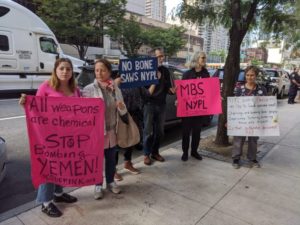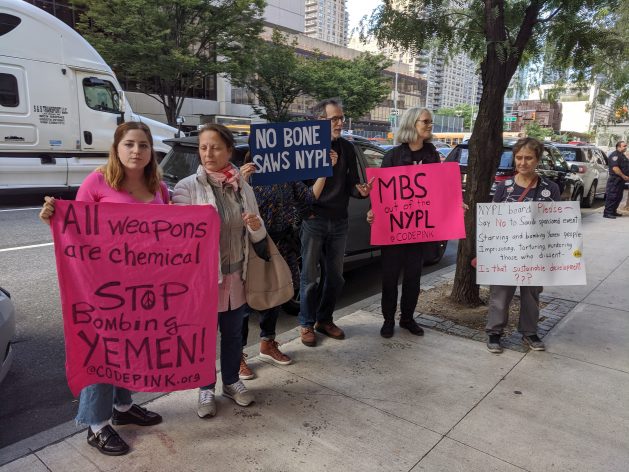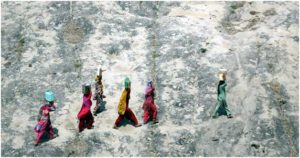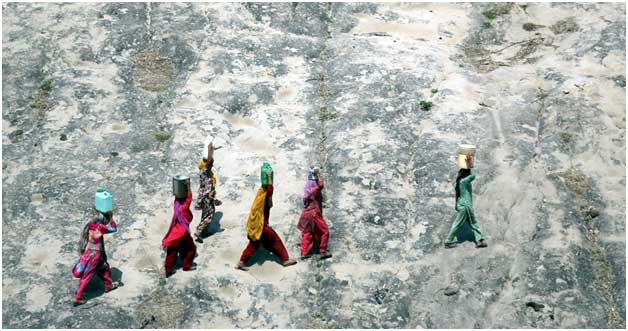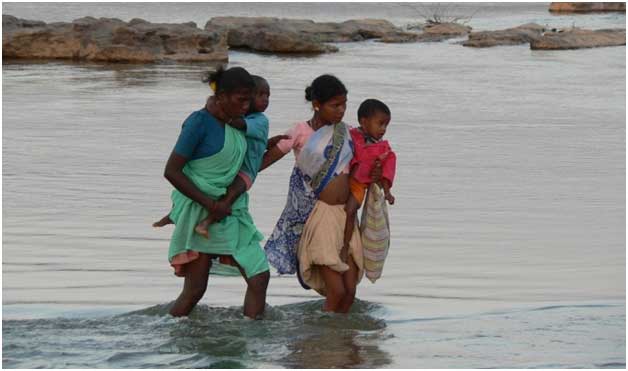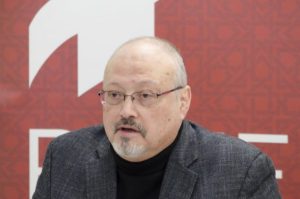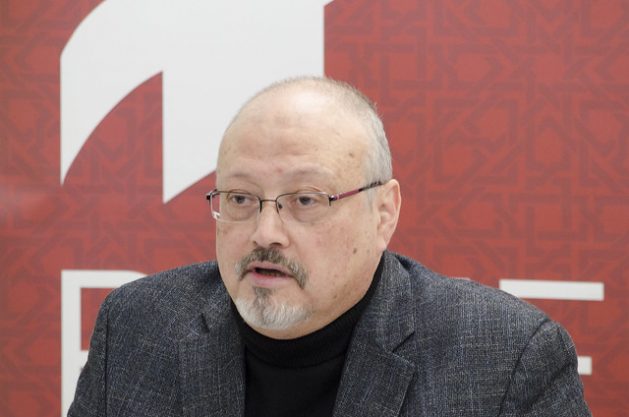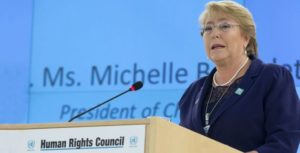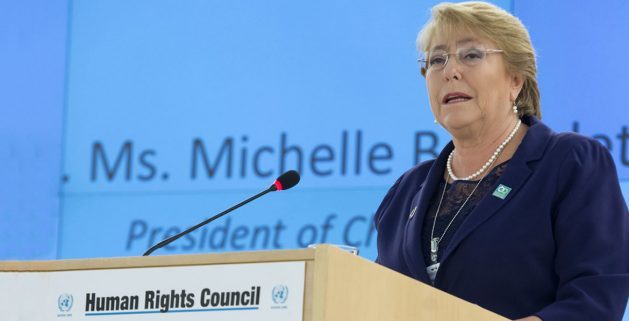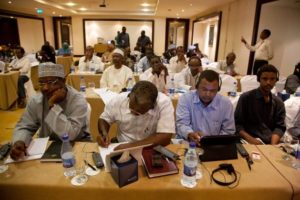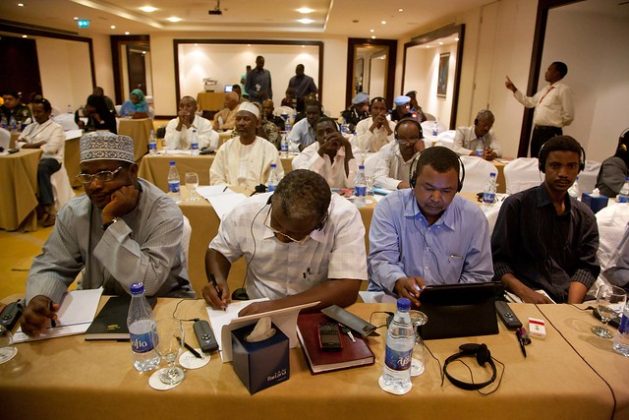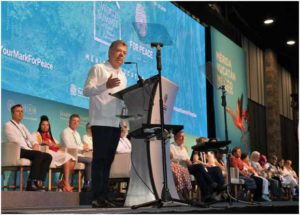
Armed Conflicts, Civil Society, Featured, Global, Global Governance, Headlines, Human Rights, Peace, TerraViva United Nations
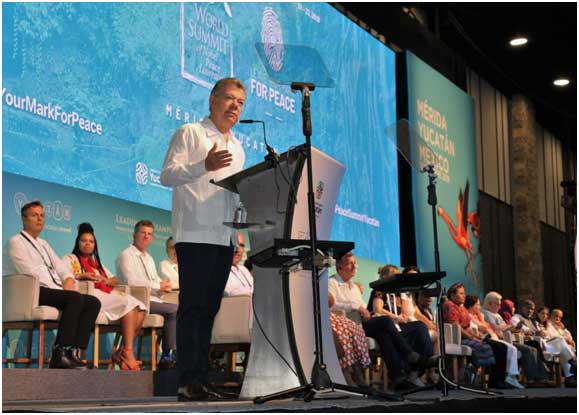
Nobel Peace Laureate and Former President of Colombia Juan Manuel Santos, opens the summit with other Laureates onstage (David Dickstein/Prose & Comms Inc.)
– In a world of increasing fragility and declining resources, can the world foster peace? With a looming climate crisis, is war inevitable? Will nuclear war be the final result? Are women the ultimate peace builders? How do we train and engage youth to promote peace?
These are some of the questions posed during last week’s three-day World Summit of Nobel Peace Laureates in Merida, Mexico which brought together 1,200 youth and 30 Nobel Peace Laureates — individual and organizations — Juan Manuel Santos, Former President of Colombia; F.W. De Klerk, former President of South Africa; Lord David Trimble, Northern Ireland; and Lech Walesa, former President of Poland.
Women continue to claim a larger seat at the Nobel Peace table. In attendance were Rigoberta Menchu Tum for her work promoting the rights of indigenous peoples; Jody Williams, awarded for her work to eradicate landmines; Shirin Ebadi, for the struggle for women and children’s rights; Tawakkol Karman of Yemen; and Leymah Gbowee of Liberia.
A few key takeaways:
Former President of Colombia, Juan Manuel Santos, awarded a Nobel Peace Prize for work with FARC to negotiate peace and end a brutal civil war, noted positive developments at home, but said some segments are taking steps backwards.
However, he remained steadfast in his commitment to peace: “For each terrorist blinded by hate, there are millions of youth that wish to preserve it. We are not here to say everything is fine, but we are here to leave our mark for peace.”
Discussing the social and economic dimensions of peace, Nobel Laureate Jody Williams railed on the world’s grotesque amounts of income disparity, and called for a total restructuring of the world’s socioeconomic systems.
While many citizens move to massive cities — megalopolises — to access employment, education and health care, they end up encountering racism. “How do we move forward on the common good?” she asked, noting that in America alone, 57 percent of the US disposable budget is spent on the military and weapons, while only 6 percent goes to health and education.
Nobel Laureate Lord David Trimble of Northern Ireland expressed concern over several regions in the world where conflicts continue, such as the Mideast, where there are proxy wars, as well as Iran’s moves to become a hegemonic state.
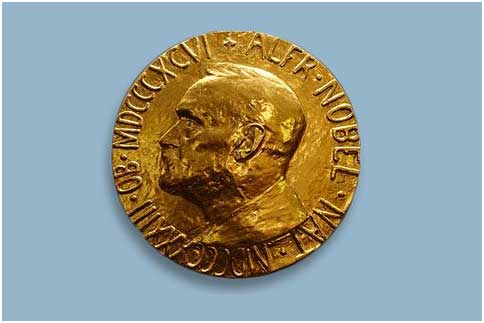
Photographic reproduction of the Nobel Peace Medal. Credit: UN Photo/John Isaac
There are dangers in the South China sea, and threats of a US-China trade war – all of it having a ripple effect, with a potential to greatly impact business and other activities.
Things are getting worse on the democracy front, according to Trimble. “It is not going as well as we would like,” he said, referring to the elections last week in Russia, where the state coerced and manufactured results, producing outcomes that were presented as democratic, but were far from it.
Highlighting the danger of technology controlled in the hands of a few mega corporations, Nobel Laureate Kailash Satyarti called for democratization of tech, and added that, the world has globalized everything, but that it needed to “globalize the compassion that exists in all of us.”
Bernice King, CEO of the King Center, and the youngest daughter of civil rights leader Martin Luther King, challenged all those who came to the summit. “ All of you have a passion to see positive change in our world. We all want peace but it has to be intentional on a daily basis,” she said. Her practical advice? Peace builders need to find an accountability partner to support them when frustrated or depressed.
King offered a message of hope: just like her father: “The only way our world is going to change, is that we have it in our hearts to be love, compassion, strength, nurturing and kindness,” she said, adding that Martin Luther King said that the children of darkness were much more determined than the children of light.
In a panel on nuclear disarmament, Jonathan Granoff, President of the Global Security Institute, and UN Representative of the Permanent Secretariat of the World Summits of Nobel Peace Laureates, posed the question: “Is it legal to annihilate the future?” Because with the power of today’s nuclear weapons, they are a quick end,” he said.
Humanity has come very close to another nuclear war but has been unbelievably lucky, according to Dr. Ira Helfand, co-chair of the Physician’s for Social Responsibility’s nuclear weapons abolition committee.
“Sooner or later our luck will run out. It is no longer a question of when there will be a nuclear war, not if there will be one,” he said, adding that youth today did not understand the enormity of the threat – greater in power and numbers. Put simply, today’s nuclear weapons can annihilate the planet in short order.
In a nod to youth’s achievements, Mohamad Al Jounde was awarded the Turner Social Change Prize, and local student Saskia Niño de Rivera was given the Leave Your Mark for Peace Award.
During closing ceremonies, delegates stated that human rights are non-negotiable. The final document, the Merida Declaration states that: “As long as basic freedoms are violated and gross corruption, violence, extreme poverty, inequality, racism, modern-day slavery and trafficking of persons, discrimination, and discrimination phobias exist, there can be no true peace. We proclaim that true peace is inseparable from the achievement of true justice.”
To learn more and watch archived panel discussions, please visit the Facebook group at World Summit of Nobel Peace Laureates. Also, The World Summit of Nobel Peace Laureates.

